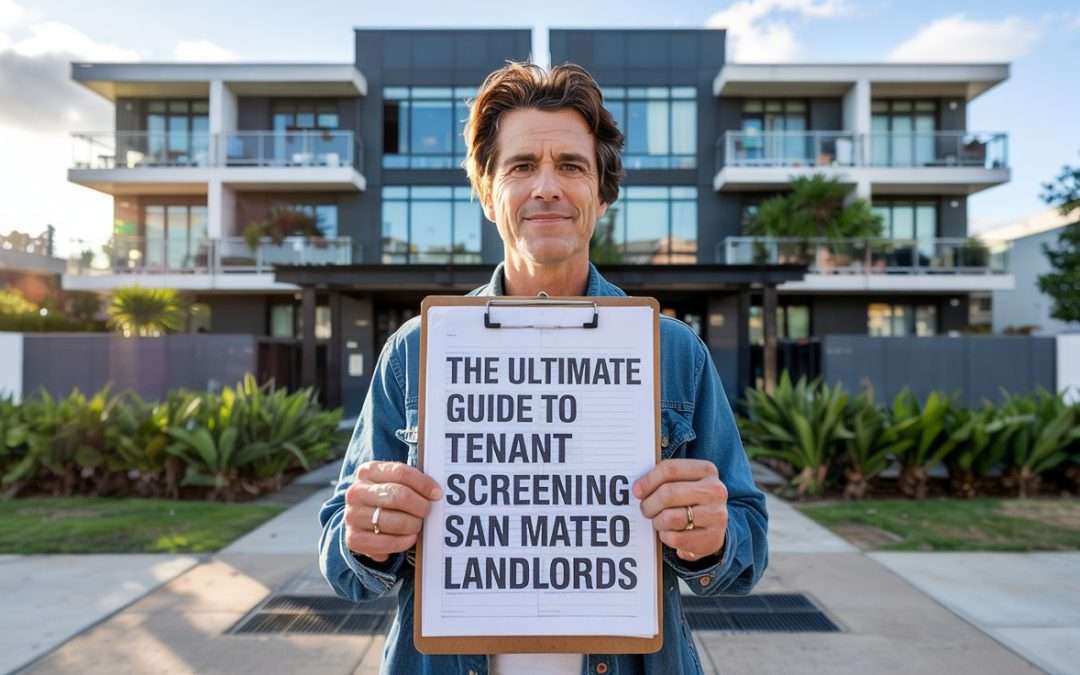Tenant screening is one of the most crucial steps for San Mateo landlords looking to secure reliable, long-term tenants while minimizing risks. A well-vetted tenant can lead to fewer missed payments, reduced property damage, and a more harmonious landlord-tenant relationship. This guide will walk you through the best practices for screening tenants effectively in San Mateo, California.
Why Tenant Screening Matters
A thorough tenant screening process helps landlords avoid many common issues associated with rental properties. Without proper screening, landlords may end up dealing with late rent payments, property damage, or even legal disputes. By taking the time to verify a tenant’s financial stability, rental history, and overall reliability, landlords can create a stress-free rental experience. Tenant screening also ensures compliance with California’s fair housing laws, reducing the risk of discrimination claims and legal trouble.
Step-by-Step Tenant Screening Process
1. Pre-Screening Tenants
Before accepting applications, pre-screening can help eliminate unqualified renters early in the process. This step includes setting clear rental criteria in your listing, such as minimum income requirements, pet policies, and credit score expectations. When potential renters inquire, ask about their employment status, reason for moving, and desired move-in date. This helps identify tenants who may not meet your criteria, saving you time and effort.
2. Rental Application
A comprehensive rental application is essential to gathering critical information about potential tenants. It should request details like full name, contact information, employment history, income verification, previous rental history, and references. Additionally, applicants should consent to background and credit checks. Ensure that your rental application complies with California’s fair housing laws to avoid potential legal issues. A detailed application allows you to compare candidates effectively.
3. Credit and Background Checks
Running a credit and background check helps landlords evaluate a tenant’s financial responsibility and past behavior. A credit report provides insight into their ability to pay rent on time, while a background check highlights any past evictions or criminal records. Ideally, a credit score of 650 or higher indicates financial stability. Look for patterns of late payments or excessive debt, as these could signal potential rental issues.
4. Verifying Income and Employment
Income verification ensures that tenants can afford rent consistently. Requesting recent pay stubs, tax returns, or bank statements helps confirm their financial stability. It’s also a good idea to contact their employer directly to verify job stability and earnings. A common guideline is that tenants should earn at least three times the monthly rent. This helps reduce the risk of late payments or financial struggles during the lease term.
5. Contacting Previous Landlords
Speaking with past landlords provides valuable insights into a tenant’s rental behavior. Ask about their payment history, whether they followed lease terms, and if they caused any property damage. Previous landlords can also share details on how the tenant interacted with neighbors and whether they would rent to them again. Be cautious of applicants who refuse to provide landlord references, as this may indicate past rental issues.
6. Interviewing the Tenant
A personal interview, either in person or via video call, helps landlords assess a tenant’s reliability and communication style. During this step, clarify lease expectations, discuss property maintenance responsibilities, and address any questions they may have. Observing a tenant’s attitude and honesty during the interview can help identify red flags before signing a lease. A face-to-face conversation often reveals more than documents alone.
Legal Considerations for San Mateo Landlords
1. Fair Housing Laws
San Mateo landlords must comply with California’s strict fair housing laws, which prohibit discrimination based on race, religion, gender, disability, family status, or source of income. Violating these laws can lead to hefty fines and legal consequences. When screening tenants, focus on objective criteria like credit history, income, and rental background rather than personal characteristics. This helps ensure compliance and fair treatment for all applicants.
2. Security Deposit Limits
California law sets strict limits on security deposits to protect tenants. For unfurnished rentals, landlords can charge up to two months’ rent as a security deposit, while for furnished units, the limit is three months’ rent. Additionally, security deposits must be refundable, and landlords must provide an itemized list of deductions if any portion is withheld. Understanding these rules can help landlords avoid disputes at the end of a lease.
3. Tenant Rights & Disclosures
Landlords in San Mateo must provide certain disclosures before a lease begins. If the property was built before 1978, a lead-based paint disclosure is required. Additionally, landlords must notify tenants of known mold hazards and provide information about rent control laws in the area. Failure to disclose these details can lead to legal issues and tenant disputes. Transparency from the beginning sets a professional tone for the landlord-tenant relationship.
Common Mistakes to Avoid in Tenant Screening
🚫 Skipping Background Checks – Never approve a tenant without verifying their background and rental history. This step prevents potential issues like missed payments and property damage.
🚫 Ignoring Landlord References – Previous landlords offer crucial insights into a tenant’s behavior. Contact them to ensure the applicant was a responsible and timely renter.
🚫 Not Following Fair Housing Laws – Avoid legal trouble by ensuring your screening process complies with all anti-discrimination laws in California.
🚫 Accepting Incomplete Applications – Always require full documentation before approving a tenant. Missing details can lead to unexpected surprises during the lease.
Final Thoughts: Finding the Right Tenant
Screening tenants properly takes time, but it’s worth the effort to secure a responsible and financially stable renter. A thorough process—including background checks, income verification, and personal interviews—helps prevent rental disputes and costly evictions. By following best practices and staying compliant with California laws, landlords can create a positive and profitable rental experience.
Need professional property management in San Mateo? PMI Bay Property Management can handle tenant screening, leasing, and property maintenance for you. Contact us today for expert assistance!


